Surveillance society must be managed
Royal Academy of Engineering releases report warning against potential misuses of CCTV, identity cards and databases.


Sign up today and you will receive a free copy of our Future Focus 2025 report - the leading guidance on AI, cybersecurity and other IT challenges as per 700+ senior executives
You are now subscribed
Your newsletter sign-up was successful
The mismanagement of CCTV, identity cards, traceable mobile phones, health and social security databases, store loyalty cards and other data retention technologies could hurt privacy and cost lives, according to a new report from the Royal Academy of Engineering.
Surveillance and collection of personal data used to make lives safer and more convenient must be engineered and monitored to prevent misuse by governments, companies and even individuals, according to the academy's Dilemmas of Privacy and Surveillance report.
"Technologies for collecting, storing, transmitting and processing data are developing rapidly with many potential benefits, from making paying bills more convenient to providing better healthcare," said Professor Nigel Gilbert, chairman of the academy working group which produced the report.
"However, these techniques could make a significant impact on our privacy. Their development must be monitored and managed so that the effects are properly understood and controlled."
With more databases holding detailed personal information - consider the national ID card registry - security is a top concern. Terrorists or criminals could hack or sabotage a health care or social security system, but even simple human error could lead to personal data being stolen or destroyed.
Engineers have a key role in the future of data protection, but the report said government and companies must lessen the risks by encrypting databases, keeping the minimum amount of data for a minimum amount of time, and by talking with people regularly to check for errors in the system.
"Engineers' knowledge and experience can help to 'design in privacy' into new IT developments," said Gilbert.
Sign up today and you will receive a free copy of our Future Focus 2025 report - the leading guidance on AI, cybersecurity and other IT challenges as per 700+ senior executives
"But first, the government and corporations must recognise that they put at risk the trust of citizens and customers if they do not treat privacy issues seriously."
Gilbert added: "It should be possible to sign up for a loyalty card without having to register it to a particular individual - consumers should be able to decide what information is collected about them.
"We have supermarkets collecting data on our shopping habits and also offering life insurance services. What will they be able to do in 20 years' time, knowing how many donuts we have bought?"
Freelance journalist Nicole Kobie first started writing for ITPro in 2007, with bylines in New Scientist, Wired, PC Pro and many more.
Nicole the author of a book about the history of technology, The Long History of the Future.
-
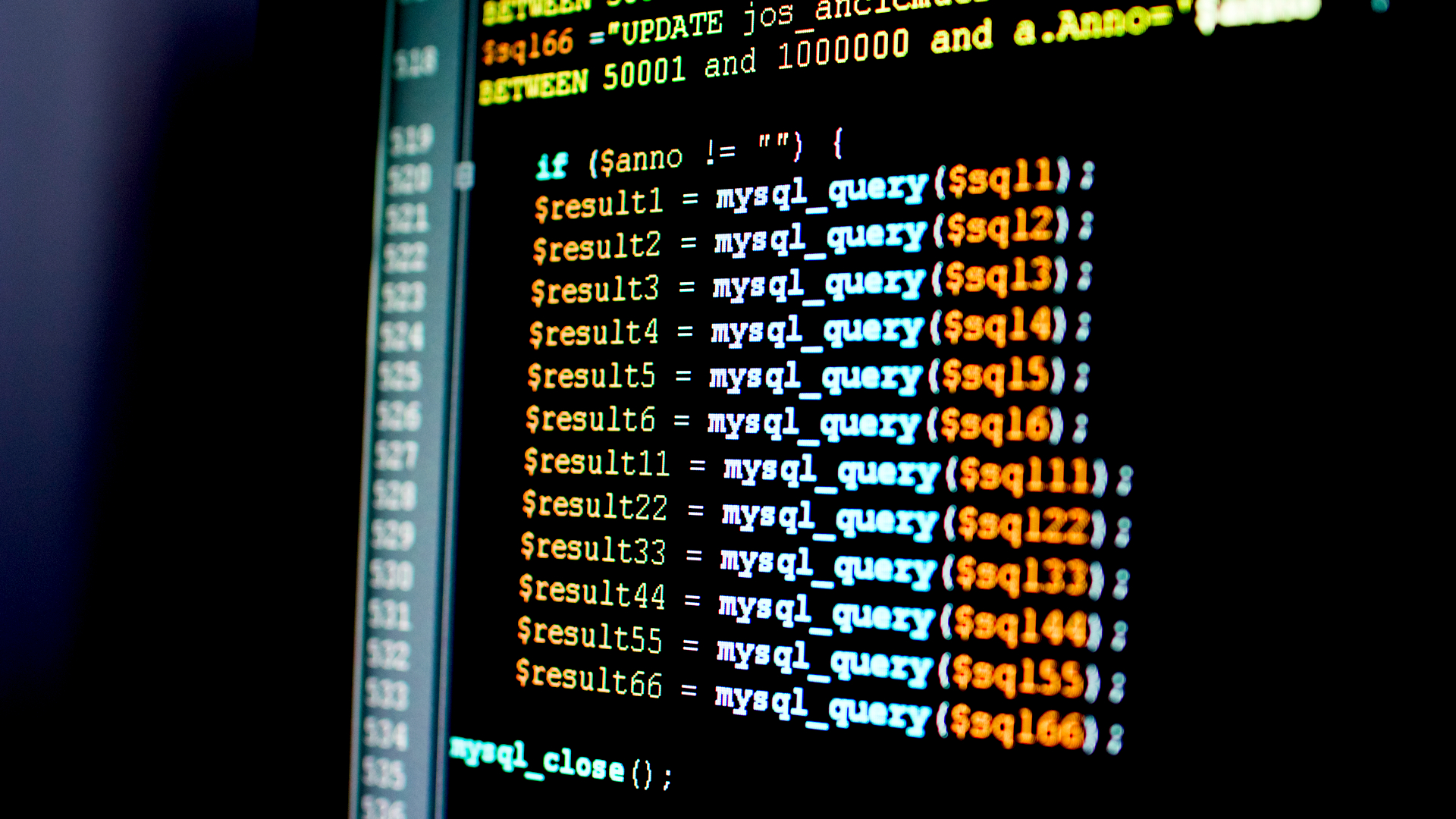 Datadog Database Monitoring extends to SQL Server and Azure database platforms
Datadog Database Monitoring extends to SQL Server and Azure database platformsNews The tool offers increased visibility into query-level metrics and detailed explanation plans
-
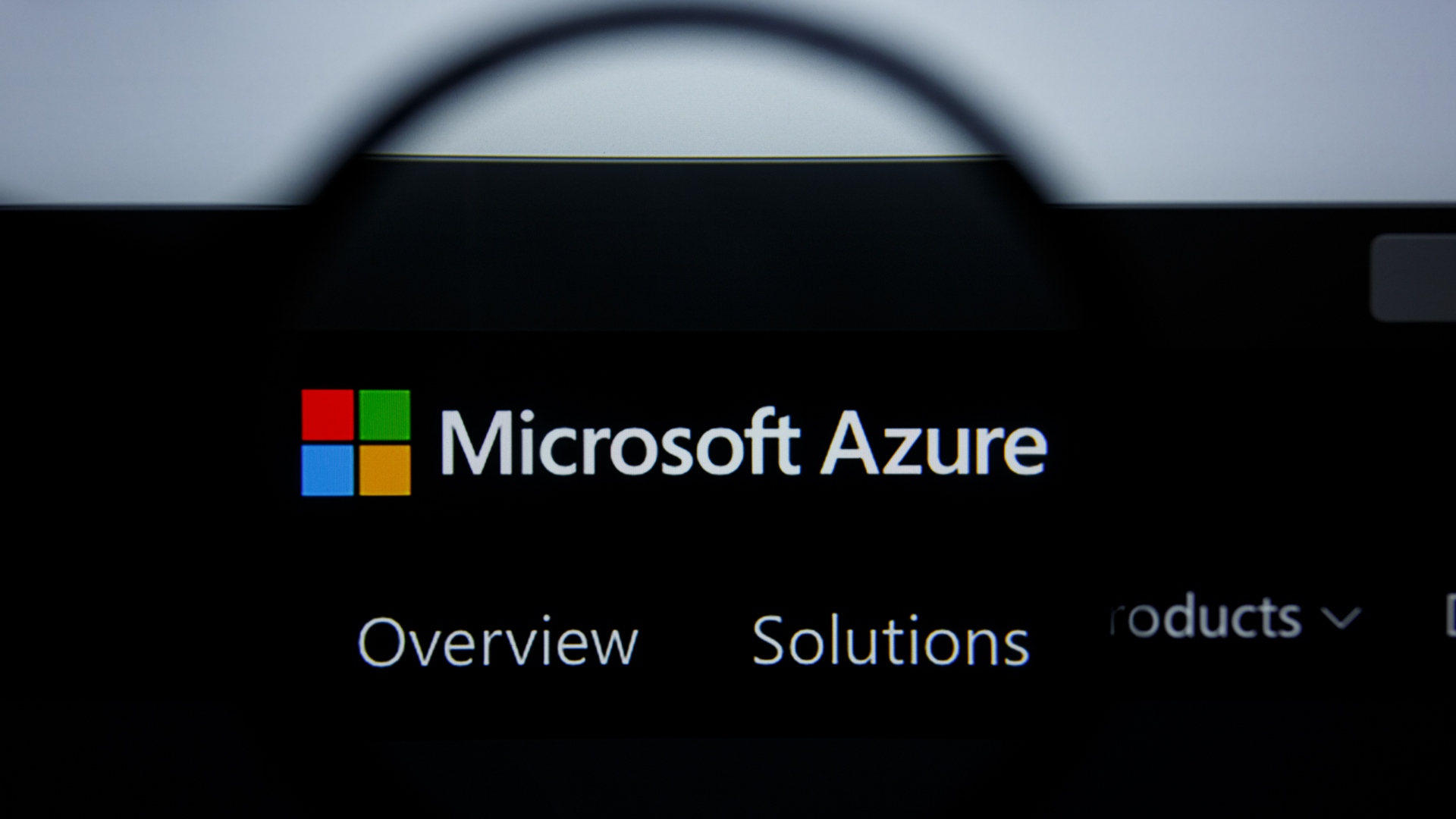 Oracle and Microsoft announce Oracle Database Service for Azure
Oracle and Microsoft announce Oracle Database Service for AzureNews Azure users can now easily provision, access, and monitor enterprise-grade Oracle Database services in Oracle Cloud Infrastructure
-
 Elastic expands cloud collaboration with AWS
Elastic expands cloud collaboration with AWSNews Partnership aims to ease migration to Elastic Cloud on AWS, as well as simplify onboarding and drive go-to-market initiatives
-
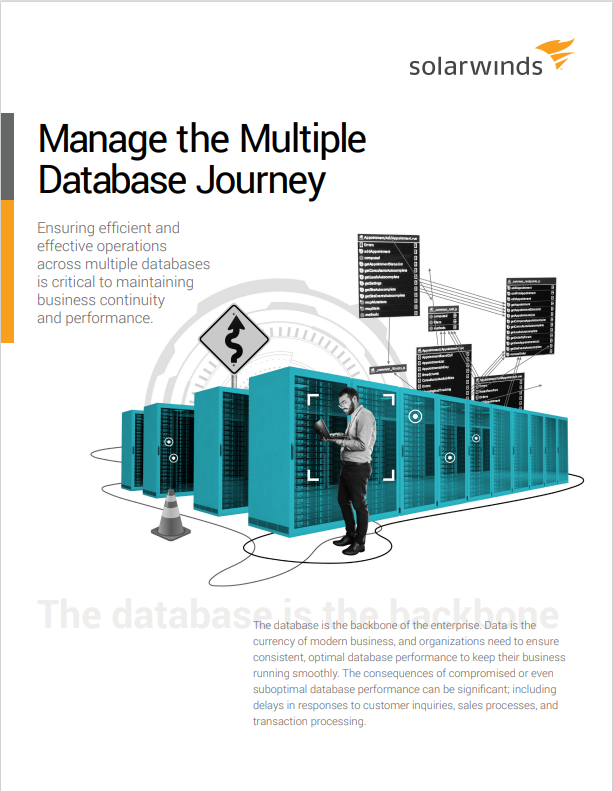 Manage the multiple database journey
Manage the multiple database journeyWhitepaper Ensuring efficient and effective operations across multiple databases
-
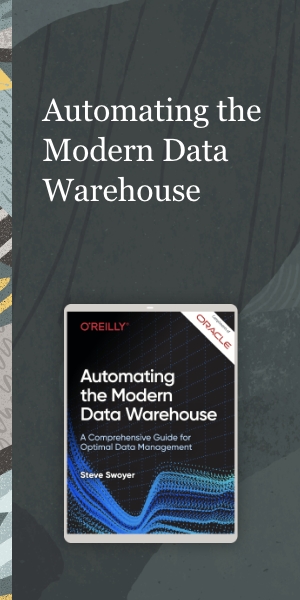 Automating the modern data warehouse
Automating the modern data warehouseWhitepaper Freedom from constraints on your data
-
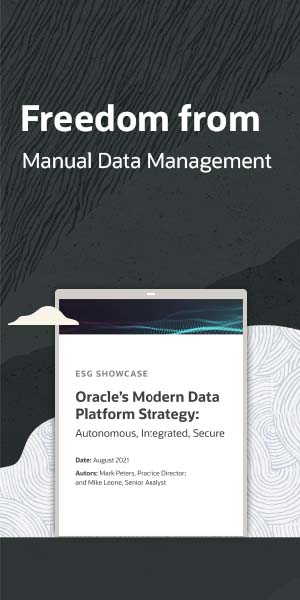 Freedom from manual data management
Freedom from manual data managementWhitepaper Build a data-driven future with Oracle
-
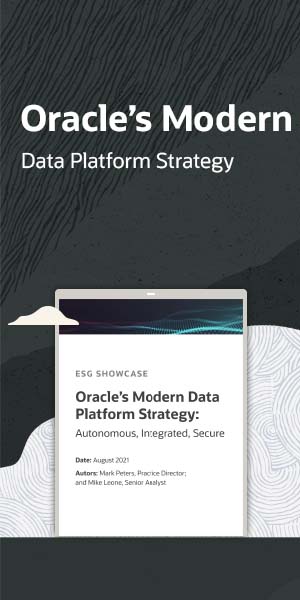 Oracle’s modern data platform strategy
Oracle’s modern data platform strategyWhitepaper Freedom from manual data management
-
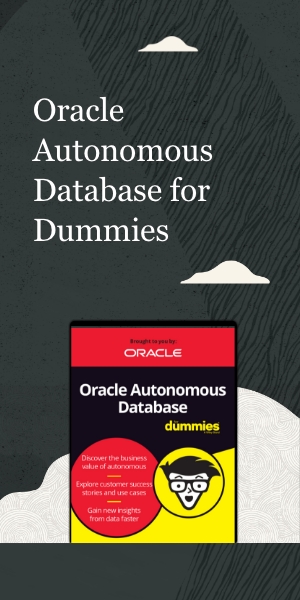 Oracle autonomous database for dummies
Oracle autonomous database for dummiesWhitepaper Freedom from mundane, manual database management


